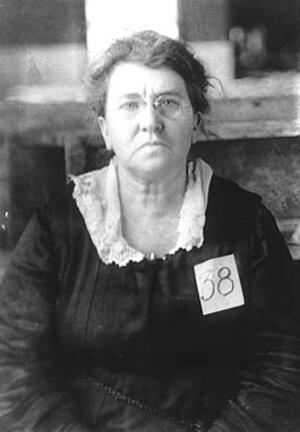Emma Goldman
Emma Goldman’s controversial beliefs made her many powerful enemies, but their attempts to silence her ironically led to greater protections of free speech in America. Suspicious of authority from an early age, Goldman committed herself to the anarchist cause after witnessing the capricious and unfair reactions of the police and the courts to labor protests. As a writer, activist, and charismatic public speaker, Goldman criticized institutions of all kinds for their abuse of power, arguing for worker’s rights, greater freedoms for women, birth control, and free love. True to her anarchist beliefs, she was actually an opponent of women’s suffrage, believing that getting the vote meant buying into a broken system. She was not afraid to use violence as a tactic to raise public awareness when she felt it was necessary, and once attempted to assassinate a high-profile industrialist. Regularly arrested, harassed, and barred from speaking by the authorities, Goldman demonstrated that First Amendment rights often evaporated when one dared challenge the government. Her example prompted many to push for protections of free speech, and eventually inspired the creation of the ACLU.



